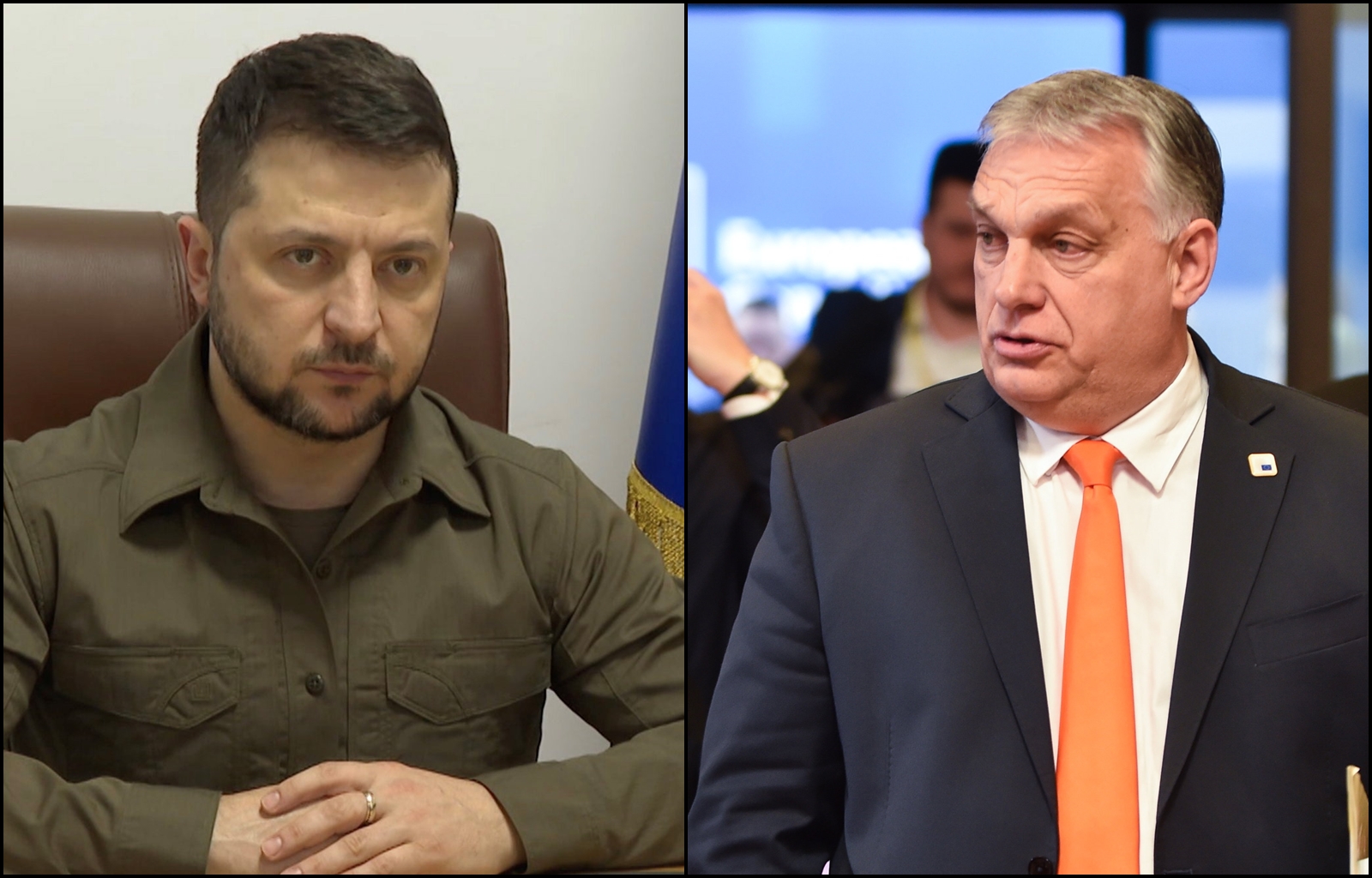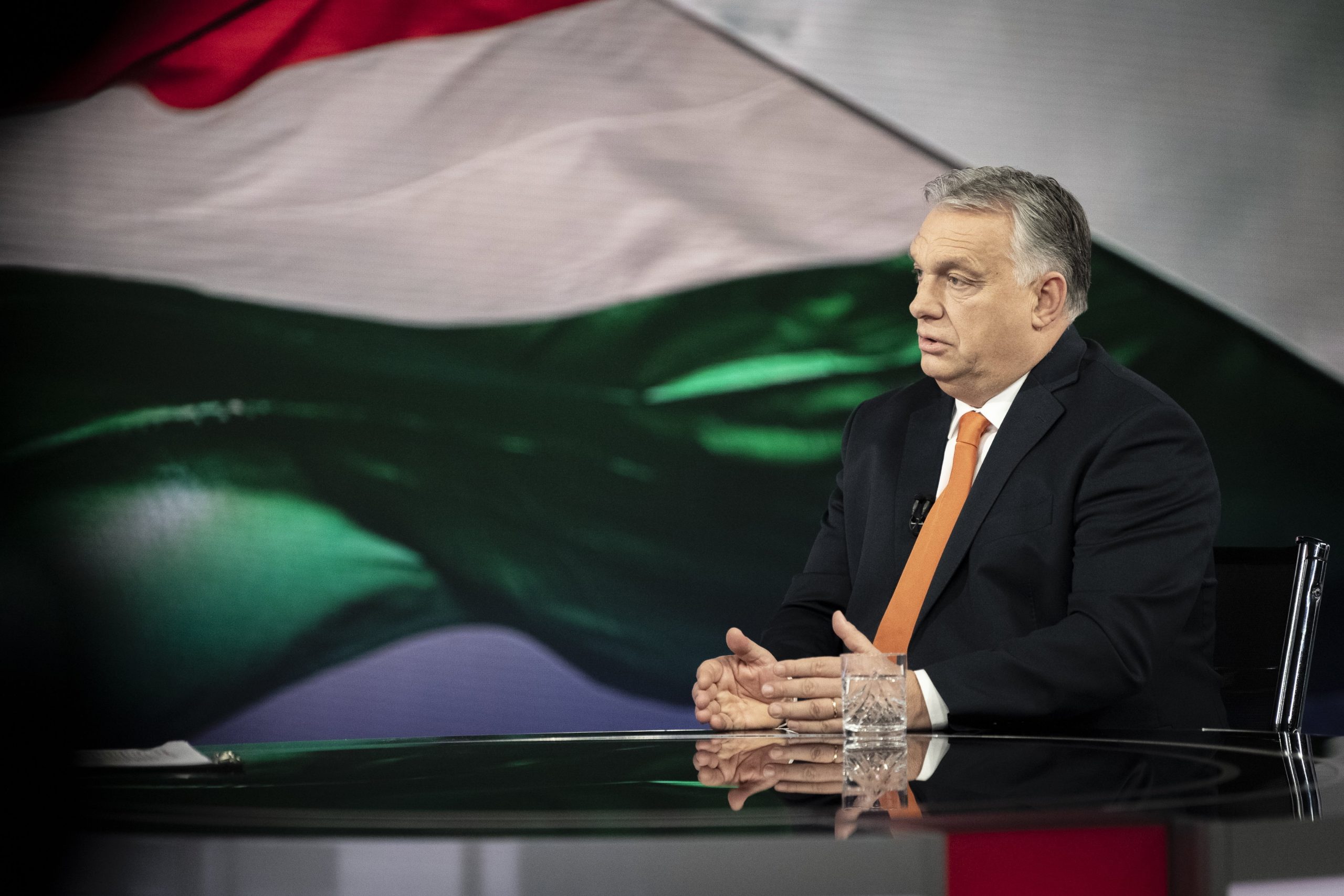
Orbán rejected requests to extend sanctions to the energy sector and to send weapons, arguing that such actions would not be in line with the national interest.Continue reading

Hungarian policies are friendly neither to Ukraine nor to Russia, but take the Hungarian nation’s interest as its basis, Prime Minister Viktor Orbán said in an interview with public radio on Sunday.
Assessing a European and NATO summit on the war in Ukraine earlier in the week, the prime minister said Hungary’s position had been carbon copied. NATO will not send troops to Ukraine nor transport weapons there, he said, though this did not stop individual member states from doing so.
He said “the problem with the Polish peace mission is there’s no peace”. A ceasefire would have to be established first, he added, otherwise peacekeeping troops would get mixed up in the fighting.
In connection with a no-fly zone, he said air warfare should be avoided. Shooting down aircraft would likewise mean taking part in the war, he added.
On the topic of Hungarian imports of Russian oil and gas, Orbán said the economy would tank if supplies were halted. Several EU member states agreed with Hungary that sanctions should not cover oil and gas, he said, referring specifically to Austria and Germany. He said the issue was not one of cost but “either the gas flows or it doesn’t”.
Orbán said stopping Russian gas and oil supplies would set the economy back 8-10 years.
He said Hungary was doing what it could “but we can’t be expected to ruin ourselves…”
The prime minister insisted that Volodymyr Zelensky, the Ukrainian president, had addressed others besides himself at the recent summit, and “attacked anyone he considered was lacking in commitment” in defending Ukraine.
Orbán said that President Zelensky’s speech criticizing him resembled a scene staged in front of him. But he does not find this surprising, because Zelensky is a professional actor.
I’m a lawyer, so that’s where I come from, I live with the knowledge I’ve acquired in the world of law, and an actor lives and works with the knowledge he has acquired as an actor. I don’t see anything extraordinary in that either. Nor do I see anything extraordinary in the President’s sharp words, which is perhaps unusual, but there is nothing more unusual than war. So I don’t find the President’s behavior unreasonable.”
(Zelensky obtained a degree in law from the Kyiv National Economic University before his acting career.)
Orbán said Ukraine had an interest in involving “as many countries as possible” in the war, “so we must absolutely make clear that we will not take part in the war”. “Our moral responsibility is not for Ukraine but for our own people.”
Hungary, he said, was providing Ukraine all the aid it could, but the government refused to do anything that would “ruin the community of the nation”.
Hungarian policies, he added, were friendly neither to Ukraine nor to Russia, but took the Hungarian nation’s interest as its basis. The “great powers”, Orbán insisted, were “not interested in the national basis but in an imperial or supranational basis”.
The prime minister said the war and Europe’s security situation had a bearing on the continent’s economic situation, and everything now had to be “recalculated”. At the EU summit, the other “important issue” besides the war was the issue of energy, he noted, adding that it was questionable as to whether Brussels bureaucrats “have a good energy policy today”. The various approaches of member states were starkly different, Orbán said, and their respective proposals reflected this fact.
Orbán said Brussels “should suspend its policy of raising prices” to shelter households from the effects of the war which could result in bills potentially three to four times their current level.
“Brussels bureaucrats hate this Hungarian proposal,” he said, adding the issue would have to be approached “very carefully”. Sooner or later the EU would have to realize that “the policy of raising prices artificially” should be abandoned, he added.
Orbán said the war had merely accelerated energy price inflation which he blamed on EU policymaking. The European Commission insists that households should be forced to use less energy to protect the climate, “and that’s why they’re raising energy prices every year…” he said.
At least half the inflation rate is due to rising energy prices, Orbán said, adding that inflation could be kept in check were it not for “Brussels bureaucrats” putting extra costs on energy consumption.
On the issue of possible food shortages due to the war in Ukraine, Orbán said the French president and other European leaders had “sounded the alarm” on this matter.
Grain shortages can destabilize not only countries but entire regions and continents, Orban noted. With production losses in Ukraine, the knock-on effect would be “millions of migrants” coming to Europe. The Arab spring, he added, “caused by a shortage of grain”, was one of the triggers of the great wave of migration in recent years.
At its current level of technology, Hungary can supply 17 million people with food, Orbán said, but if “we did things better”, this could be increased to 20 million.
If prices ran away, he said, suddenly buyers would appear offering such high prices for Hungarian produce that they would simply “suck the food supplies out of Hungary”.
He said this was why it had been necessary to introduce restrictions on grain exports, a decision which the EU had taken issue with. The state, he noted, has pre-emption rights on grain if the country’s security situation warranted it.
“We’re not taking anything from anybody; we are not Communists,” Orbán said. “But we will protect our national interest, and if Hungary needs the amount of grain affected by a given contract, then we will step in and buy it at that price.”
Currently, this policy does not align with EU rules, Orbán said, adding however that he believed that those rules would sooner or later have to be changed “as every country will have to guarantee secure food supply for its own citizens”.
Featured photo illustration by Vivien Cher Benko/PM’s Press Office